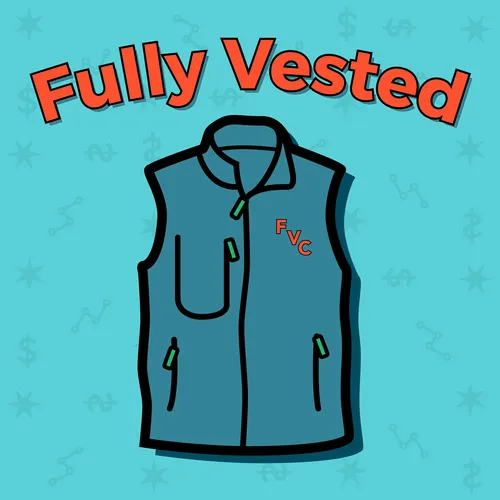I'm not an expert, but HUGE
- Author
- Graham C. Peck, Jason D. Rowley
- Published
- Wed 04 Aug 2021
- Episode Link
- https://fullyvested.co/episodes/038-im-not-an-expert-but-huge-iXOFXXMI
General
Subscribe to Fully Vested at FullyVested.co or through your podcast app of choice.
Some definitions
"Startups" are hard to define, but many different definitions point toward similar themes:
- "A startup or start-up is a company or project undertaken by an entrepreneur to seek, develop, and validate a scalable business model." – First sentence of the Wikipedia page for 'Startup company,' at least at the time of recording
- "A startup is a newly established company whose corporate form allows a clear distinction between different shareholders and the ability to receive outside financing while the goal is super rapid growth and market dominance by offering an innovative product or service." – Marius Schober, on his blog
- "A startup is an organization formed to search for a repeatable and scalable business model." – Steve Blank
- "Properly defined, a startup is the largest group of people you can convince of a plan to build a different future. A new company’s most important strength is new thinking: even more important than nimbleness, small size affords space to think." – Peter Thiel, in his book Zero To One
- "A startup is a company designed to grow fast." – Paul Graham, founder of Viaweb and Y Combinator, in September 2012
- "A startup is a human institution designed to create a new product or service under conditions of extreme uncertainty." – Eric Reis in his book, The Lean Startup
- "A startup is a venture that is initiated by its founders around an idea or a problem with a potential for significant business opportunity and impact." – Startup Commons
- "A 'startup' is a company that is confused about: 1. What its product is, 2. Who its customers are, [and] 3. How to make money. As soon as it figures out all 3 things, it ceases being a startup and becomes a real business. Except most times, that doesn't happen." – Dave McClure, founder of 500 Startups and Practical VC, on Quora in 2013
Some differentiators between startups and small businesses
It just so happens that one of your Fully Vested co-hosts has done some writing about this. From the Startup Fundamentals cluster on Golden...
Startups tend to share several characteristics which serve to distinguish them from small businesses:
- Innovation. Startup companies are typically built around a new idea, method, or product. While the products and services a startup may offer are enabled by technology, not all startups are rooted in unique, defensible intellectual property. They may offer a new type of business or service model (ex. app-based ride-hailing services vs. the traditional taxi industry) or a unique design or interaction model which sets them apart from established competitors.
- Risk. Startup companies often operate at the edge of a technical field or market for their product or service. Given their small size, limited resources, and often unproven demand for their commercial offerings, startup companies experience high rates of business failure. However, with high risk can come high reward.
- Scale. Almost by definition, startup companies start small. At launch, they may serve a small geographic area or a specific customer segment, sometimes referred to as a "beachhead market." However, from a management and economic standpoint, startups are designed to scale up beyond their initial markets and serve many, many customers. For startups, economic viability is often predicated on very large scale.
- Speed. Small team sizes and relatively flat organizational structures let startup teams make decisions and move quickly to seize upon a market opportunity. Limited available resources (see runway) and competitive pressure makes speed a necessity.
Some resources
- What The Hell Is A Startup Anyway? (Alex Wilhelm for TechCrunch in December 2014)
- What’s the Difference Between a Small Business Venture and a Startup?(Candice Landau, for Bplans.com)
About The Co-Hosts
- Jason D. Rowley is a researcher and writer at Golden.com. He volunteers with startup outreach for the open-source community and sends occasional newsletters from Rowley.Report.
- Graham C. Peck is a Venture Partner with Cultivation Capital and additionally helps companies build technology development teams in partnership with Brightgrove and other technology development organizations.
